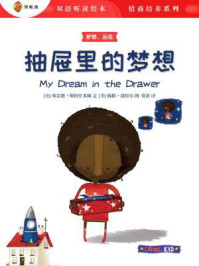




Cedric's good opinion of the advantages of being an earl increased greatly during the next week. It seemed almost impossible for him to realize that there was scarcely anything he might wish to do which he could not do easily; in fact, I think it may be said that he did not fully realize it at all. But at least he understood, after a few conversations with Mr. Havisham, that he could gratify all his nearest wishes, and he proceeded to gratify them with a simplicity and delight which caused Mr. Havisham much diversion. In the week before they sailed for England he did many curious things. The lawyer long after remembered the morning they went down-town together to pay a visit to Dick, and the afternoon they so amazed the apple-woman of ancient lineage by stopping before her stall and telling her she was to have a tent, and a stove, and a shawl, and a sum of money which seemed to her quite wonderful.
"For I have to go to England and be a lord," explained Cedric, sweet-temperedly. "And I shouldn't like to have your bones on my mind every time it rained. My own bones never hurt, so I think I don't know how painful a person's bones can be, but I've sympathized with you a great deal, and I hope you'll be better."
"She's a very good apple-woman," he said to Mr. Havisham, as they walked away, leaving the proprietress of the stall almost gasping for breath, and not at all believing in her great fortune. "Once, when I fell down and cut my knee, she gave me an apple for nothing. I've always remembered her for it. You know you always remember people who are kind to you."
It had never occurred to his honest, simple little mind that there were people who could forget kindnesses.
The interview with Dick was quite exciting. Dick had just been having a great deal of trouble with Jake, and was in low spirits when they saw him. His amazement when Cedric calmly announced that they had come to give him what seemed a very great thing to him, and would set all his troubles right, almost struck him dumb. Lord Fauntleroy's manner of announcing the object of his visit was very simple and unceremonious. Mr. Havisham was much impressed by its directness as he stood by and listened. The statement that his old friend had become a lord, and was in danger of being an earl if he lived long enough, caused Dick to so open his eyes and mouth, and start, that his cap fell off. When he picked it up, he uttered a rather singular exclamation. Mr. Havisham thought it singular, but Cedric had heard it before.
"I soy!" he said, "what're yer givin' us?" This plainly embarrassed his lordship a little, but he bore himself bravely.
"Everybody thinks it not true at first," he said. "Mr. Hobbs thought I'd had a sunstroke. I didn't think I was going to like it myself, but I like it better now I'm used to it. The one who is the earl now, he's my grandpapa; and he wants me to do anything I like. He's very kind, if he IS an earl; and he sent me a lot of money by Mr. Havisham, and I've brought some to you to buy Jake out."
And the end of the matter was that Dick actually bought Jake out, and found himself the possessor of the business and some new brushes and a most astonishing sign and outfit. He could not believe in his good luck any more easily than the apple-woman of ancient lineage could believe in hers; he walked about like a boot-black in a dream; he stared at his young benefactor and felt as if he might wake up at any moment. He scarcely seemed to realize anything until Cedric put out his hand to shake hands with him before going away.
"Well, good-bye," he said; and though he tried to speak steadily, there was a little tremble in his voice and he winked his big brown eyes. "And I hope trade'll be good. I'm sorry I'm going away to leave you, but perhaps I shall come back again when I'm an earl. And I wish you'd write to me, because we were always good friends. And if you write to me, here's where you must send your letter." And he gave him a slip of paper. "And my name isn't Cedric Errol any more; it's Lord Fauntleroy and—and good-bye, Dick."
Dick winked his eyes also, and yet they looked rather moist about the lashes. He was not an educated boot-black, and he would have found it difficult to tell what he felt just then if he had tried; perhaps that was why he didn't try, and only winked his eyes and swallowed a lump in his throat.
"I wish ye wasn't goin' away," he said in a husky voice. Then he winked his eyes again. Then he looked at Mr. Havisham, and touched his cap. "Thanky, sir, fur bringin' him down here an' fur wot ye've done, He's—he's a queer little feller," he added. "I've allers thort a heap of him. He's such a game little feller, an'—an' such a queer little un."
And when they turned away he stood and looked after them in a dazed kind of way, and there was still a mist in his eyes, and a lump in his throat, as he watched the gallant little figure marching gayly along by the side of its tall, rigid escort.
Until the day of his departure, his lordship spent as much time as possible with Mr. Hobbs in the store. Gloom had settled upon Mr. Hobbs; he was much depressed in spirits. When his young friend brought to him in triumph the parting gift of a gold watch and chain, Mr. Hobbs found it difficult to acknowledge it properly. He laid the case on his stout knee, and blew his nose violently several times.
"There's something written on it," said Cedric,—"inside the case. I told the man myself what to say. 'From his oldest friend, Lord Fauntleroy, to Mr. Hobbs. When this you see, remember me.' I don't want you to forget me."
Mr. Hobbs blew his nose very loudly again.
"I sha'n't forget you," he said, speaking a trifle huskily, as Dick had spoken; "nor don't you go and forget me when you get among the British arrystocracy."
"I shouldn't forget you, whoever I was among," answered his lordship. "I've spent my happiest hours with you; at least, some of my happiest hours. I hope you'll come to see me sometime. I'm sure my grandpapa would be very much pleased. Perhaps he'll write and ask you, when I tell him about you. You—you wouldn't mind his being an earl, would you, I mean you wouldn't stay away just because he was one, if he invited you to come?"
"I'd come to see you," replied Mr. Hobbs, graciously.
So it seemed to be agreed that if he received a pressing invitation from the earl to come and spend a few months at Dorincourt Castle, he was to lay aside his republican prejudices and pack his valise at once.
At last all the preparations were complete; the day came when the trunks were taken to the steamer, and the hour arrived when the carriage stood at the door. Then a curious feeling of loneliness came upon the little boy. His mamma had been shut up in her room for some time; when she came down the stairs, her eyes looked large and wet, and her sweet mouth was trembling. Cedric went to her, and she bent down to him, and he put his arms around her, and they kissed each other. He knew something made them both sorry, though he scarcely knew what it was; but one tender little thought rose to his lips.
"We liked this little house, Dearest, didn't we?" he said. "We always will like it, won't we?"
"Yes—yes," she answered, in a low, sweet voice. "Yes, darling."
And then they went into the carriage and Cedric sat very close to her, and as she looked back out of the window, he looked at her and stroked her hand and held it close.
And then, it seemed almost directly, they were on the steamer in the midst of the wildest bustle and confusion; carriages were driving down and leaving passengers; passengers were getting into a state of excitement about baggage which had not arrived and threatened to be too late; big trunks and cases were being bumped down and dragged about; sailors were uncoiling ropes and hurrying to and fro; officers were giving orders; ladies and gentlemen and children and nurses were coming on board,—some were laughing and looked gay, some were silent and sad, here and there two or three were crying and touching their eyes with their handkerchiefs. Cedric found something to interest him on every side; he looked at the piles of rope, at the furled sails, at the tall, tall masts which seemed almost to touch the hot blue sky; he began to make plans for conversing with the sailors and gaining some information on the subject of pirates.
It was just at the very last, when he was standing leaning on the railing of the upper deck and watching the final preparations, enjoying the excitement and the shouts of the sailors and wharfmen, that his attention was called to a slight bustle in one of the groups not far from him. Some one was hurriedly forcing his way through this group and coming toward him. It was a boy, with something red in his hand. It was Dick. He came up to Cedric quite breathless.
"I've run all the way," he said. "I've come down to see ye off. Trade's been prime! I bought this for ye out o' what I made yesterday. Ye kin wear it when ye get among the swells. I lost the paper when I was tryin' to get through them fellers downstairs. They didn't want to let me up. It's a hankercher."
He poured it all forth as if in one sentence. A bell rang, and he made a leap away before Cedric had time to speak.
"Good-bye!" he panted. "Wear it when ye get among the swells." And he darted off and was gone.
A few seconds later they saw him struggle through the crowd on the lower deck, and rush on shore just before the gang-plank was drawn in. He stood on the wharf and waved his cap.
Cedric held the handkerchief in his hand. It was of bright red silk ornamented with purple horseshoes and horses' heads.
There was a great straining and creaking and confusion. The people on the wharf began to shout to their friends, and the people on the steamer shouted back:
"Good-bye! Good-bye! Good-bye, old fellow!" Every one seemed to be saying, "Don't forget us. Write when you get to Liverpool. Good-bye! Good-bye!"
Little Lord Fauntleroy leaned forward and waved the red handkerchief.
"Good-bye, Dick!" he shouted, lustily. "Thank you! Good-bye, Dick!"
And the big steamer moved away, and the people cheered again, and Cedric's mother drew the veil over her eyes, and on the shore there was left great confusion; but Dick saw nothing save that bright, childish face and the bright hair that the sun shone on and the breeze lifted, and he heard nothing but the hearty childish voice calling "Good-bye, Dick!" as little Lord Fauntleroy steamed slowly away from the home of his birth to the unknown land of his ancestors.


